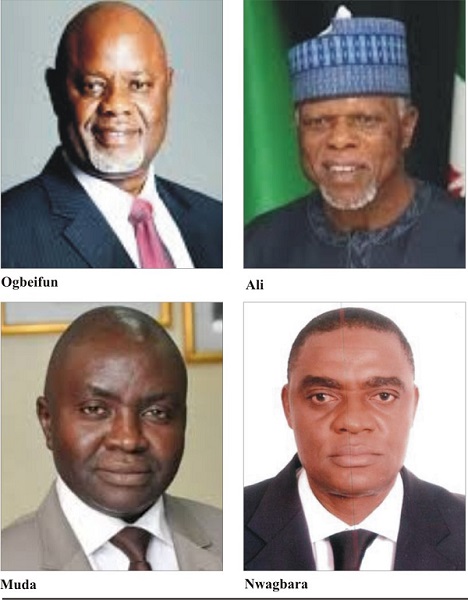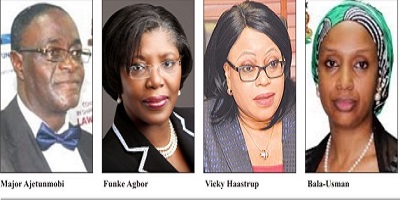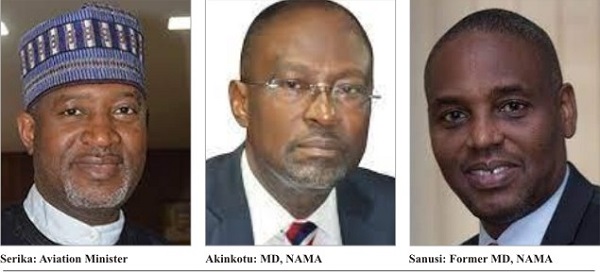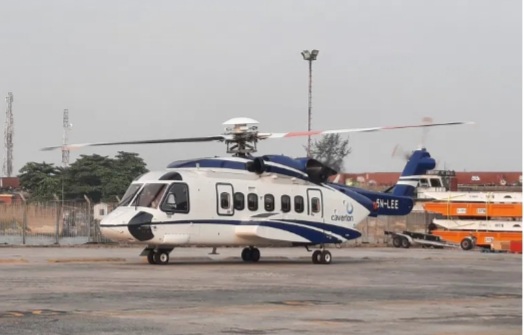AfCFTA: Experts Dissect Nigeria’s Prospects As Preparation Reach 81%
 By Kenneth Jukpor
By Kenneth Jukpor
Despite the COVID-19 pandemic leaving effects Africa’s economy in rumbles like other continents of the world, the pandemic hasn’t dented the continent’s anticipated historic milestone, the African Continental Free Trade Area (AfCFTA) which has taken effect to boost intra-regional trade.
Some nations, however, are yet to fashion commence trade under the agreement with the rules of origin the major undefined aspect of the trade framework. Meanwhile, Nigeria Customs Service (NCS) revealed last week that the engagement with trade experts on the planned AfCFTA take-off has attained 81 percent readiness.
Given the status of AfCFTA from Customs perspective on social media last week, the National Public Relations Officer of NCS, Mr. Joseph Attah acknowledged that the list of Nigerian Tariff offers has been communicated to NCS from the national office for trade negotiation and ECOWAS.
“We have started the reconfiguration of the system to capture the AfCFTA procedures. The senior trade officials comprising of trade leaders in all African countries are still meeting to finalize the rules of origin criteria. Trade in AFCFTA will start after the crucial criteria is completed. Currently it is at 81%,” the Customs spokesman revealed.
Meanwhile, a rich array of Nigeria stakeholders met last week to explore strategies for successful and beneficial international trade for the nation using AfCFTA as a popular online newspaper; Primetime Reporters organized its 3rd Annual Lecture and Awards on the theme: “Assessing Nigeria’s Preparedness to Maximize the Gains of AfCFTA”
At the event, the Director General of Lagos Chamber of Commerce and Industry (LCCI), Dr. Yusuf Muda said that one of the biggest problems investors in Nigeria are having is coming from the maritime sector of the economy.
While presenting a paper titled, “Assessing Nigeria’s Preparedness to Maximize the Gains of AfCFTA”, Yusuf observed that there was so much frustration, hiccups and uncertainties that investors are still struggling with it.
“The Secretary of the National Action Committee on AfCFTA talked about engagements with authorities through associations. We do that a lot of times but it can be very challenging when you are dealing with some of these agencies particularly in maritime sector. You are dealing with many of them that are even monopolies in a way and when someone is a monopolist, there is a limit to which you can fight such a person. You can’t walk away easily and say you are going to the competitor. It is not easy to walk away, so, you are stucked with them,” he lamented.
He also noted that the problematic companies and regulatory agencies don’t have any dispute resolution mechanism that is credible.
“In terms of merchandise goods that we trade, almost 90% of it is by sea. Look at what we face with shipping companies, terminal operators, customs, other regulatory agencies; then we talk of the infrastructure around the port, the traffic and all that,” he added.
In his keynote address, the Senior Special Assistant to the President on Public Sector Matters and Secretary, National Action Committee on AfCFTA, Mr. Francis Anatogu argued that this regional trade agreement represents a golden era for chambers of commerce and industry associations and the businesspersons in the region.
He, however, harped on the need to contact persons that are reachable across frontiers protecting the interests of shippers.
“We need a mindset change across board even for us as individuals. It is okay if you get into trouble or your good is held down on the street coming from Kano to Lagos, you call somebody, he will call somebody and then, he will talk to the person on the road and you move. If your good is going to South Africa, who are you going to call? But you need to have somebody to call. When we say trade facilitation, there is written trade facilitation but I believe that at the end of the day, our chambers of commerce, our associations would need to interact and link up with their counterparts in other areas to make it happen”, he stated.
Meanwhile, a former President of Ship Owners Association of Nigeria (SOAN), Engr. Greg Ogbeifun advocated for measurable strategies to be put in place to monitor the level of progress made by Nigeria in its quest to fully participate in AfCFTA.
Ogbeifun, at the summit, recalled that the limitations of the Cabotage Act in Nigeria was as a result of the inability of the federal government to adhere to the provisions of the Act which provided for five year performance evaluation of the Cabotage which was never done.
He, therefore, warned that AfCFTA should not be allowed to go the way of the Cabotage regime in Nigeria by ensuring a yearly performance evaluation to measure the level of progress being made by the country to achieve her dream of becoming a big time player in AfCFTA.
His words, “We have a strategy, do we have a roadmap? We are here now, that is where we want to go but let us take it in milestones and genuinely put strategies in place – measurable strategies where we can check if we are going according to the plans we set out for ourselves. Generally, we have very beautiful ideas but we don’t take practical steps to actualize.”
Recalling his days as the President, Ship Owners Association of Nigeria (SOAN), Ogbeifu who is also the Chairman of Starzs Investment Company Limited said that he fought, spoke, gave talks and everything about re-establishing a global trading national fleet adding that the Hassan Bello led committee made presentations to all levels of government up to the National Economic team headed by the Vice president, Prof. Yemi Osinbajo twice.
“Beautiful response, he (Osinbajo) handed it over to Enelamah who was then Minister, fantastic, he gave marching orders then. Enelamah handed us over to Yewande of NIPC, fantastic engagement. Yewande now passed it on to the National Planning Committee, we were with Udo Udoma, fantastic engagement from there, and we went to CBN. We are going round in the circles,” he narrated.
According to him, the reason Nigeria doesn’t have a national fleet is because of the government.
“If the government appreciates the fact that without having such a platform we are not going to participate effectively in this initiative, then, they should come out and say what the bottleneck is, let us unlock it, it is very simple. What are the other countries doing to make a national fleet a reality? We can copy it. For me, there isn’t the political will, I don’t know why because the country is losing heavily by not having national fleet. Every time you go along Marina and you look at Apapa Wharf, all the ships you have there are foreign ships bringing in our own imports and taking away our exports. We need to have a global trading ship”, he stressed.
Also speaking at the event, a veteran maritime lawyer, Barr. Osuala Emmanuel Nwagbara called for a law to regulate the retail sector in Nigeria, arguing that a sector which contributed 16.4% to the nation’s Gross Domestic Product (GDP) should not be left at the mercy of foreigners.
He regretted that non Nigerians were now playing big in the retail sector which according to him, employed most Nigerians of all ages.
His words: “We must up our game if we are ready to play big in AfCFTA. The interest is not just playing big but the impact it will have on our economy. How much will AfCFTA improve the living standards of an average Nigerian? How much can it contribute to the growth of Nigeria’s GDP? What are we doing about our investment laws? Are we looking at our investment laws to make them bring in the FOREX that we need to develop? Ghana is doing a lot about investment laws”.
On corporate business, he pointed out that there was no business that one coud do without having a corporate entity registered with the Corporate Affairs Commission of Nigeria (CAC) saying that it was not just about registering companies but how to administer those companies so registered.
“Today in Nigeria, in spite of the efforts of PEBEC, if you are doing any post incorporation activity at CAC, you don’t know when you would conclude. Whether you are appointing new Directors, whether you are changing existing Directors, whether you are increasing your share capital, any resolution you want to file at the CAC, nobody knows when it will be over. Are we ready?” he queried.
Nwagbara also noted that Nigerian Investment Promotion Commission (NIPC) Act has only N20 million as the capital requirement for a foreigner to trade in Nigeria whereas Ghana has a minimum of $200,000, $500,000, $1,000,000; lamenting that the N20 million is less than $5,000.
Earlier, the LCCI boss also called on individual players in the Nigerian economy to as a matter of urgency develop their own individual business strategy to enable them participate effectively in AfCFTA as there is a very sound business case for it.
He argued that with a population of about 1.2 billion and the continental Gross Domestic Product (GDP) of about $3.4 trillion, the market was indeed big.
Yusuf recalled that a Readiness and Impact Assessment Committee was set up by President Muhammadu Buhari to look at the readiness issues adding that the committee submitted its report on readiness issues around the ports, aviation, road, power and around all the problems that investors were facing.
“The report has been submitted, the situation has not changed, nothing is even happening, the situation even getting worse”, he said.







